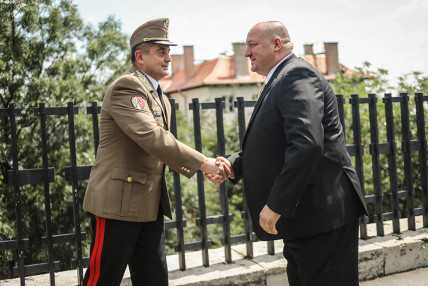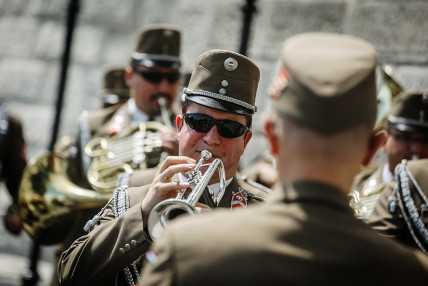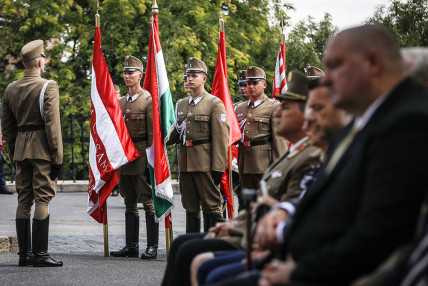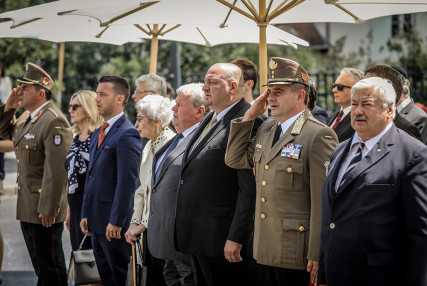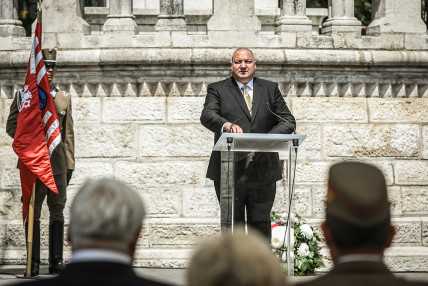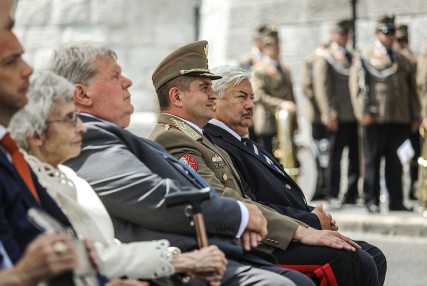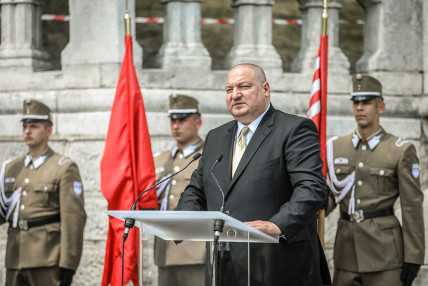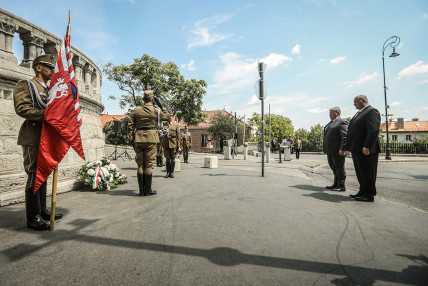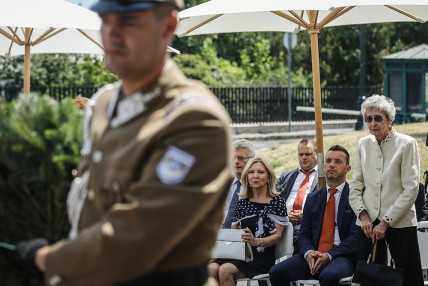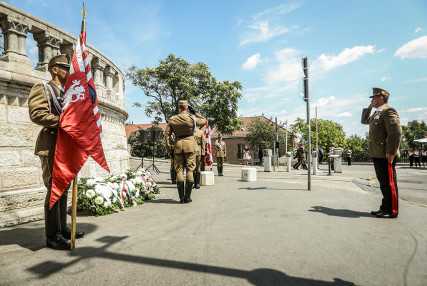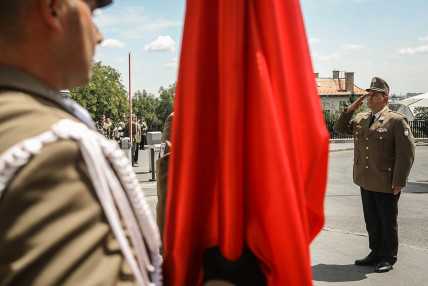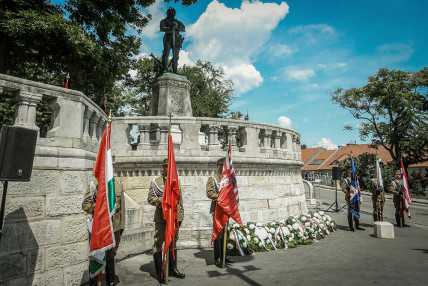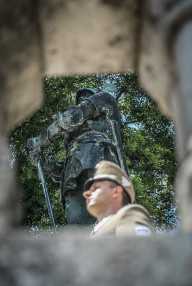The Triumph of Nándorfehérvár sets an example to the whole of Europe
Szöveg: Szabolcs Nyulas | 2019. július 22. 15:01The devotion of the heroes of the triumph of Nándorfehérvár could be an example not only for the Hungarian people, but for the whole of Europe – Szilárd Németh Deputy Minister, Parliamentary State Secretary of the Ministry of Defence said on the Memorial Day of the Triumph of Nándorfehérvár at the statue of Hunyadi in the Buda Castle on Monday, 22nd July.
Galéria
Videó
Videó
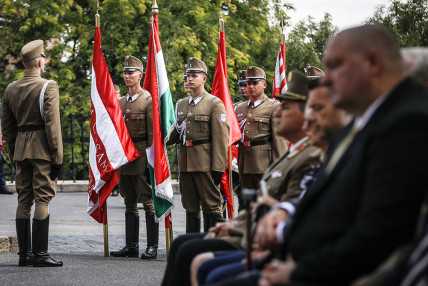
In the ceremony, the State Secretary said that the Triumph of Nándorfehérvár was the biggest military victory of the Hungarian-Turkish wars, but perhaps of the more than a thousand years of Hungarian history. The Turkish Empire once terrorizing the whole of Europe, in 1453, under the lead of II. Mehmed, the Conqueror took Constantinople, and made it the capital with the name of Istanbul, then with their full force turned against Hungary. In 1456 the Turkish troops sieged Nándorfehérvár, the key fortress of the Hungarian defence belt. The Sultan could not overcome the defenders, and Hunyadi’s rescuing army inflicted a stunning defeat on Mehmed in his own camp.
The Triumph of Nándorfehérvár – became inseparable from the name of Hunyadi János – together with that of John of Capistrano, and his contemporaries also acknowledged the merits of the military leader. Hunyadi deeply believed in the importance of the battle fought for the Christian Europe against the Ottoman Empire, and in that the outcome of this is crucial for the future of our Motherland. As many times in history, so during the Nándorfehérvár battle lasting for three-weeks, Hungary defended not only herself, but the whole of Europe, and the Christian world: the unexpected and shining victory stopped the Turks’ further expansion in Europe for almost seventy years.
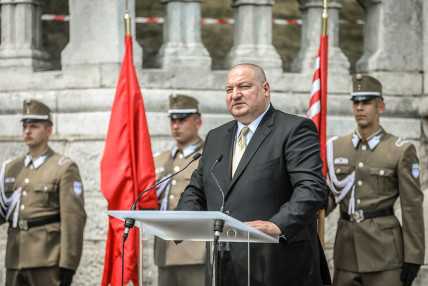
Szilárd Németh emphasised that although battles today are already fought at the conference tables, and the threats take different forms, Hungary still plays a vital role in the 21st century, in the defence of the European borders. As 563 years ago, so today the situation has arisen, that most of Europe did not take the threat seriously. But the Hungarians recognised the danger. “As today, so back then the responsibility of the defence of the Christian Europe fell on Central Europe, and as we accomplished this mission at Nándorfehérvár, so we fulfil this duty today through the protection of our borders. We trust that in order to regain security, migration should be stopped, the Christian culture of Europe should be defended, and the nations should be given respect" – the State Secretary highlighted.
After the ceremonial speech, wreaths were placed at the statue, among others by Szilárd Németh and János Süli, Minister without Portfolio for the expansion of the Paks Nuclear Power Plant, and also by Deputy Commander of the Hungarian Defence Forces Lieutenant General Gábor Böröndi, and the Commandant of the MoD Institute and Museum for Military History.
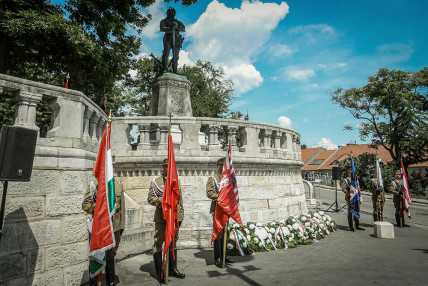
Photos of Veronika Dévényi
